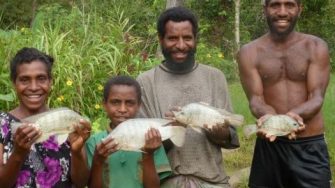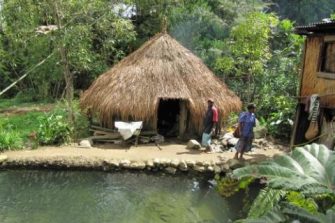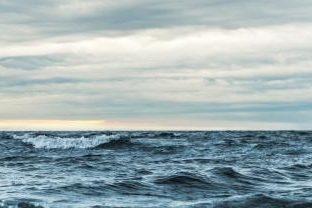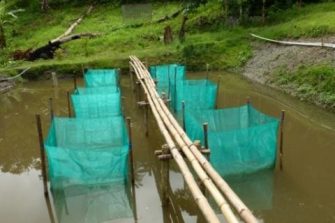
Project details:
- Project leaders: A/Prof Jes Sammut (UNSW) & Jacob Wani (National Fisheries Authority, PNG).
- Project duration: 4 years, commencing August 2015.
- Project budget: $1.6 Million (ACIAR); $4.1 Million from all sources.
- Commissioned agency: UNSW Australia.
- Lead partner agency: National Fisheries Authority, PNG.
- Project partners: National Department of Agriculture and Livestock (NDAL), EHP Department of Agriculture, Livestock and Fisheries, Highlands Aquaculture Development Centre (HAQDEC), University of Technology (UniTech), Sisters of Notre Dame at the Maria Kwin Training Centre, The Australian Nuclear Science and Technology Organisation (ANSTO), Bihute Correctional Institution & RDS Partners.
Project background
Pond-based production of Genetically Improved Farmed Tilapia (GIFT) and European Carp is rapidly expanding in the rural areas of Papua New Guinea (PNG) to the point that there are approximately 50,000 farms. Current production levels are low when compared to those of Southeast Asia because of an inadequate supply of quality fingerlings, poor broodstock management practices and the cost and availability of formulated fish feed and fertilisers. A general lack of knowledge of fish husbandry and pond management is also widespread in PNG. Over 80 per cent of the population of PNG is unemployed and the majority of rural dwellers periodically or chronically experience protein deficiency in their diet due to the high cost of fresh meat and other animal-based protein.
The National Fisheries Authority (NFA) requested a follow-on project from FIS/2008/023 (Increasing production from inland aquaculture in PNG for food and income security) to continue research on resolving the constraints on the industry in an effort to improve food and income security in rural areas and to increase the social benefits of aquaculture. FIS/2008/023 demonstrated that inland aquaculture generates significant social benefits as well as enabling communities and individuals to adopt fish farming as a livelihood. Developing fish farming in rural areas is a priority of the Government of PNG, and the collaboration between UNSW and NFA has been the primary driver for research and management for this industry. This project also places a greater emphasis on quantifying the social and economic benefits of fish farming in PNG.
The main research questions are:
- What are the economic, social and environmental bottlenecks for growth of inland aquaculture in PNG? What are the social and economic benefits of aquaculture development in PNG?
- What are the opportunities for growth of the industry and how can they be best exploited?
- At what levels of farmer capacity, business-models, or types of institutional arrangement will interventions to grow the inland aquaculture sector be most successful?
- What are the most practical technologies for broodstock management and fingerling production for smallholder farmers in PNG?
- What are the most effective, low-cost fish feed formulations, feeding and fertiliser strategies, and fish husbandry practices for tilapia and carp cultured in earthen ponds?
Objectives
The overall aim of the project is to increase production of tilapia and carp using low-cost and farmer-friendly technologies to improve food and income security as well as to increase the associated social benefits for smallholders. The specific objectives of the project are to:
- Evaluate the strengths, weaknesses, opportunities and threats to inland aquaculture in PNG and develop a sector-based strategic plan for NFA.
- Evaluate the social and economic benefits of aquaculture development in PNG.
- Improve broodstock management, fingerling production and husbandry technologies.
- Develop effective, low-cost feed formulations and feeding and fertiliser strategies.
Our stakeholders
The project team works with rural communities, existing and new fish farmers, prisoners in correctional centres, former prisoners, people with HIV/AIDS and other diseases, human health programs, vulnerable and disadvantaged people, schools, NGOs and government agencies. Our mission is to improve access to fish-based protein, increase income security and help people to improve their lives through fish farming. Our research focus is to develop low-cost, scientifically-validated solutions to fish farming problems in PNG.
For more information, contact A/Prof. Jes Sammut (Project Leader) on j.sammut@unsw.edu.au or +61 2 9385 8281




